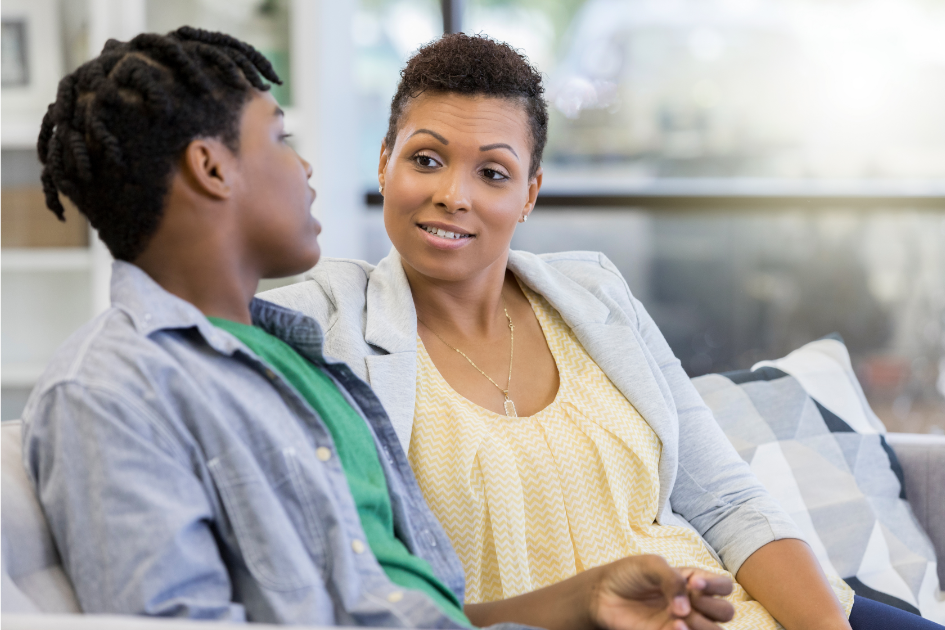Ask kids this basic question to instantly make them more cooperative — the answer doesn't matter
Just by asking and listening, you've already won.
This trick can fix any attitude.
Raising kids can be a frustrating experience, no matter how rewarding you also find it. Sometimes, it can feel like half of parenting is repeating yourself over and over again, asking your child to brush their teeth or take a dish from the living room to the sink. It’s exhausting and makes you feel like a nag. Don't you wish there was a simple way to make your kids listen the first time?
Dr. Rebecca Kennedy, aka “Dr. Becky,” is a clinical psychologist and founder and CEO of Good Inside who says she has a quick way to make your kids more cooperative and less rude. Talk about killing two soul-crushing birds with one parenting stone. Dr. Becky got into psychology after struggling with anorexia as a teenager.
“Okay, no matter how old your kid is, you can use this 15-second tip to decrease rudeness and increase cooperation,” she says in a TikTok video with over 32,000 views. “Find your child today and ask them this question. 'Hey, I was just wondering, what could I do better as your parent?'”

The psychologist says that even if the child has a random or impractical answer such as “Let me stay up ‘til midnight” or “I’d like to eat macaroni and cheese for breakfast, lunch and dinner,” just to listen. Simply by listening, you can change your child’s behavior.
She says we should also ask more questions to further the conversation: “Tell me more. What would that be like?”
@drbeckyatgoodinside Want to improve your relationship with your kid in less than 15 seconds? Watch this reel for a quick-win strategy. The best part: When we use strategies like this in calm moments, we reduce the frequency of difficult moments with our kids. Of course, I’m a realist… I know you need in-the-moment strategies too! Cue: My Conquering Problem Behaviors Workshop. You’ll get an entire toolbox of in-the-moment and outside-the-moment strategies for reducing outbursts and strengthening your bond with your kid. Learn more in the link in bio!
“I mean, imagine your boss coming to you randomly and asking how they could be a better manager to you. Just by asking the question and listening,” she continued. Dr. Becky says that asking our kids how we’re doing as parents communicates three essential ideas: “I care about you. I respect you. I'm invested in this relationship.”
This type of questioning builds a connection with a child that can spill over into other behaviors. “You're building connection. And with more connection always comes more cooperation,” she ends the video.
The big takeaway from the video is that when we enhance our connection with our kids, they will be less likely to disobey or be rude because they feel heard and respected, so there’s no need to act out. They will also return that respect by listening to you when you have a request, such as taking out the trash or putting down their phone and coming to dinner.
Some people in the comments got funny responses when they asked their kids what they could improve. “I asked my 5yr old. I got a mildly scathing look and she said ‘erm, maybe try and burn dinner less next time?’” one parent wrote. “My 5 yo told me to look better and get a haircut,” another added.
Dr. Becky’s quick question is a great way for parents to strengthen their relationships when things are going well instead of trying to forge connections during conflict. It’s a great reminder that even when parenting, an ounce of prevention is a pound of cure.

Dr. Becky sums up the importance of prevention in her TikTok caption: “When we use strategies like this in calm moments, we reduce the frequency of difficult moments with our kids,” she wrote.
This article originally appeared last year. It has been updated.
- Mom shares a beautiful positive parenting example when her 6-year-old was rude to her ›
- Psychologist shares 3 things you can say to a 'rude' kid to stop the attitude ›
- Need help with a rude kid? Teachers share 9 ways to deal with kids who make rude comments. ›
- Parents share the 'one simple habit' that made their lives run so much smoother - Upworthy ›

